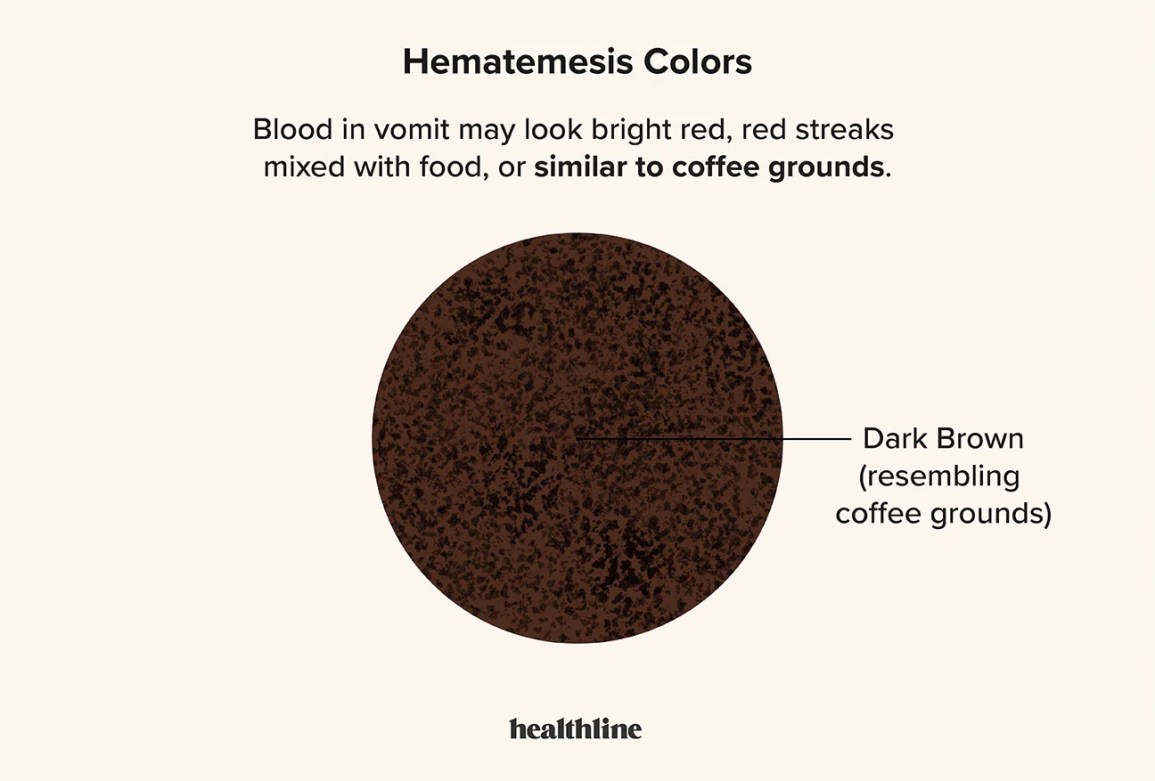Introduction

Vomiting after drinking coffee can be a perplexing and uncomfortable experience. For coffee lovers who enjoy their daily cup of joe, the sudden onset of nausea can be disheartening. Understanding the causes behind this reaction is essential to finding ways to minimize or prevent it. From individual sensitivities to caffeine to the acidic content of coffee and potential interactions with additives, there are several factors that can contribute to the vomiting after drinking coffee. By exploring these factors and implementing some tips and recommendations, individuals can still enjoy their coffee while minimizing the likelihood of experiencing negative symptoms.
Overview Of Vomiting After Drinking Coffee
Vomiting after drinking coffee can be a distressing experience for individuals who enjoy their daily dose of caffeine. This reaction is characterized by the expulsion of stomach contents through the mouth, often accompanied by nausea and discomfort. The causes of this reaction can vary from individual to individual. Factors such as sensitivity to caffeine, the acidic content of coffee, gastrointestinal disorders, and the presence of additives in coffee can contribute to vomiting. Understanding these causes and implementing strategies to minimize or prevent this reaction can help individuals continue to enjoy their coffee without the uncomfortable consequences.
Possible Reasons For This Reaction
There are several possible reasons why an individual may experience vomiting after drinking coffee. These reasons include sensitivity to caffeine, the acidic content of coffee, gastrointestinal disorders, and the presence of additives in coffee. People who have a sensitivity to caffeine may experience symptoms such as anxiety, irritability, elevated heart rate, and muscle spasms. The high acidity levels in certain types of coffee can irritate the stomach and contribute to nausea and vomiting. Individuals with gastrointestinal disorders like GERD or gastritis may be more prone to experiencing these symptoms after consuming coffee. Additionally, additives like milk or sweeteners may interact with coffee and cause digestive discomfort. It is important to recognize these potential triggers and make adjustments to minimize or avoid the onset of vomiting.
Sensitivity To Caffeine
Caffeine sensitivity is a common reason why some individuals may experience vomiting after drinking coffee. Caffeine has a stimulating effect on the central nervous system, which can lead to symptoms such as anxiety, irritability, elevated heart rate, and muscle spasms. Some people are more sensitive to the effects of caffeine than others, and even small amounts can trigger unpleasant reactions. It is important to note that caffeine sensitivity is a personal attribute and can vary from person to person. Managing caffeine intake and opting for decaffeinated or low-caffeine alternatives may help reduce the likelihood of vomiting after consuming coffee.
Caffeine’s Effect On The Stomach
Caffeine’s effect on the stomach is twofold. First, caffeine stimulates the central nervous system, which can lead to increased production of stomach acid. This excess acid can irritate the lining of the stomach and cause discomfort, nausea, and even vomiting. Second, caffeine can relax the muscles of the lower esophageal sphincter, the valve that prevents stomach acid from flowing back into the esophagus. This relaxation can contribute to acid reflux and gastroesophageal reflux disease (GERD), leading to further digestive discomfort and potential vomiting after drinking coffee. It’s important to be aware of these effects and consider them when consuming caffeinated beverages.
Individual Sensitivity To Caffeine
Individual sensitivity to caffeine can vary greatly among individuals. Some people may have a higher tolerance to caffeine and not experience any adverse effects, while others may be highly sensitive and react strongly to even small amounts of caffeine. Factors such as genetics, metabolism, and overall health can influence an individual’s response to caffeine. It is important for individuals to be mindful of their own sensitivity levels and adjust their caffeine intake accordingly. This can involve reducing the amount of caffeine consumed or choosing decaffeinated alternatives. Taking note of any negative effects and consulting with a healthcare professional can help individuals navigate their caffeine sensitivity.
Acidic Content Of Coffee
Coffee is known to contain acids that can have an impact on the digestive system. The pH levels of most coffees range from 4.85 to 5.10, indicating an acidic nature. These acids can speed up the digestion process, leading to the urgency to use the restroom after consuming coffee. Additionally, the acid content in coffee can cause gastrointestinal symptoms such as heartburn, acid reflux, and bloating. These symptoms occur when stomach acid flows back into the esophagus. It is important to note that highly acidic foods and drinks, like coffee, are often the culprits behind these symptoms.
Acidity Levels In Various Coffee Types
Different coffee types can have varying levels of acidity. For instance, light roast coffees tend to be more acidic compared to dark roast coffees. The acidity in coffee is determined by factors such as the origin of the beans, the altitude at which they are grown, and the processing methods used. Some popular coffee varieties known for their high acidity include Ethiopian Yirgacheffe and Kenyan coffees. On the other hand, Brazilian and Colombian coffees are generally known for having lower acidity levels. It is important to note that personal taste preferences and tolerance to acidity can also play a role in how different individuals react to the acidity of coffee.
Impact Of Coffee Acidity On The Digestive System
The acidity levels in coffee can have an impact on the digestive system. High acid content in coffee can irritate the lining of the stomach and esophagus, leading to symptoms such as heartburn, indigestion, and in some cases, vomiting. The acidity of coffee can also stimulate the production of excess stomach acid, further exacerbating these symptoms. Individuals with pre-existing gastrointestinal conditions like GERD or gastritis may be more sensitive to the acidic content in coffee and experience more severe digestive discomfort. It is important to be aware of one’s tolerance to coffee acidity and make adjustments accordingly to prevent digestive issues.
Gastrointestinal Disorders

Individuals with pre-existing gastrointestinal disorders, such as gastroesophageal reflux disease (GERD) or gastritis, may be more susceptible to vomiting after drinking coffee. These conditions result in increased sensitivity to the acidic content of coffee, leading to exacerbation of symptoms like heartburn and indigestion. The high acidity of coffee can further irritate the already inflamed lining of the stomach and esophagus in individuals with these disorders. It is crucial for individuals with such conditions to be aware of their coffee tolerance and adjust their consumption accordingly to prevent digestive discomfort and vomiting.
Relationship Between Coffee And Disorders Like GERD Or Gastritis
Coffee consumption can have a significant impact on individuals with gastrointestinal disorders such as GERD or gastritis. The high acidity of coffee can irritate the already inflamed lining of the stomach and esophagus, leading to increased symptoms like heartburn and indigestion. Coffee also stimulates the production of stomach acid, which can worsen the symptoms of these conditions. Furthermore, coffee may relax the lower esophageal sphincter, allowing stomach acid to flow back into the esophagus, causing further discomfort. It is important for individuals with GERD or gastritis to be cautious with their coffee intake to prevent vomiting and exacerbation of symptoms.
Effects Of Pre-existing Conditions On Coffee Consumption
Individuals with pre-existing gastrointestinal conditions such as GERD or gastritis may experience worsened symptoms after consuming coffee. The high acidity and stimulatory effects of coffee can irritate the already inflamed lining of the stomach and esophagus, leading to increased discomfort and a higher likelihood of vomiting. For those with these conditions, it is advisable to limit or avoid coffee consumption altogether to prevent exacerbation of symptoms. Consulting with a healthcare professional can provide further guidance on appropriate dietary choices for managing these conditions.
Coffee Additives
Coffee additives such as milk, cream, sugar, or sweeteners can potentially contribute to the occurrence of vomiting after drinking coffee. These additives may upset the stomach and create discomfort, especially for individuals with sensitive digestive systems. The compounds present in coffee, along with these additives, can interact with each other and exacerbate gastrointestinal symptoms. It is advisable for those experiencing vomiting after drinking coffee to consider eliminating or limiting the use of these additives. Additionally, it is crucial to consult a healthcare professional if any interactions between coffee additives and medications are suspected.
Role Of Additives Like Milk Or Sweeteners
Milk or sweeteners are popular additives in coffee, but they can potentially contribute to vomiting after drinking coffee. These additives may upset the stomach and create discomfort, especially for individuals with sensitive digestive systems. The compounds present in coffee, along with these additives, can interact with each other and exacerbate gastrointestinal symptoms. Therefore, it is advisable for those experiencing vomiting after drinking coffee to consider eliminating or limiting the use of these additives. It is crucial to consult a healthcare professional if any interactions between coffee additives and medications are suspected.
Potential Interactions Causing Vomiting
It is important to be aware of potential interactions that can cause vomiting after drinking coffee. The compounds present in coffee, such as caffeine and acidity, can interact with certain medications and lead to gastrointestinal symptoms. Additionally, additives like milk or sweeteners can exacerbate these interactions and contribute to vomiting. It is crucial to consult a healthcare professional if there is suspicion of any interactions between coffee additives and medications. Limiting or eliminating the use of these additives may be beneficial in reducing the likelihood of vomiting after drinking coffee.
Tips And Recommendations
To reduce the likelihood of vomiting after drinking coffee, it is recommended to consider the following tips:
- Opt for low-acid coffee varieties such as dark roasts, decaf coffee, espresso, or cold brew, as they tend to be gentler on the stomach.
- Avoid drinking coffee on an empty stomach. It is better to have a small meal or snack before consuming coffee to help minimize the risk of nausea.
- Experiment with different brewing methods. Some individuals find that certain brewing methods, such as French press or pour-over, produce a smoother and less acidic coffee.
- Limit or eliminate additives like milk or sweeteners, as they can exacerbate interactions with medications and contribute to gastrointestinal discomfort.
- Consider consulting a healthcare professional, especially if you have pre-existing gastrointestinal disorders or are taking medications that may interact with coffee.
By implementing these tips, individuals may be able to enjoy their coffee without experiencing negative effects such as vomiting.
Reducing The Likelihood Of Vomiting After Drinking Coffee
To reduce the likelihood of vomiting after drinking coffee, individuals can consider the following tips and recommendations. First, opting for low-acid coffee varieties such as dark roasts, decaf coffee, espresso, or cold brew can be gentler on the stomach. It is also important to avoid drinking coffee on an empty stomach and instead have a small meal or snack before consumption. Experimenting with different brewing methods like French press or pour-over can produce a smoother and less acidic cup of coffee. Additionally, limiting or eliminating additives such as milk or sweeteners can decrease the risk of gastrointestinal discomfort. Consulting a healthcare professional may also be beneficial, especially if one has pre-existing gastrointestinal disorders or is taking medications that may interact with coffee.
Alternative Approaches To Enjoy Coffee Without Negative Effects.
There are alternative approaches to enjoy coffee without experiencing negative effects such as vomiting. One option is to opt for low-acid coffee varieties like dark roasts, decaf coffee, espresso, or cold brew, as they are gentler on the stomach. Another approach is to have a small meal or snack before drinking coffee to prevent it from being consumed on an empty stomach. Experimenting with different brewing methods like French press or pour-over can also produce a smoother and less acidic cup of coffee. Additionally, limiting or eliminating additives such as milk or sweeteners can decrease the risk of gastrointestinal discomfort caused by coffee. By implementing these alternative approaches, individuals can still enjoy their coffee without experiencing the unpleasant effects.
Frequently Asked Questions: Vomiting After Drinking Coffee
Q: Why do I vomit after drinking coffee?
A: Vomiting after drinking coffee can occur due to several reasons. It could be an adverse reaction to caffeine or other compounds present in the coffee, such as acidity that irritates the stomach lining. It can also be a symptom of an underlying health condition or excessive consumption of coffee.
Q: What should I do if I vomit after drinking coffee?
A: If you experience vomiting after drinking coffee, it is best to stop consuming coffee and let your stomach settle. Drink plenty of clear fluids like water or herbal tea to stay hydrated. If vomiting persists or is accompanied by severe symptoms such as abdominal pain or blood in vomit, it is advisable to seek medical attention.
Q: Can coffee allergies cause vomiting?
A: Yes, coffee allergies can lead to vomiting in some individuals. Allergies to coffee can cause an immune response in the body triggering symptoms like vomiting, nausea, stomach cramps, or even skin rashes. If you suspect an allergy to coffee, consult a healthcare professional for evaluation and proper diagnosis.
Q: Is vomiting after coffee a sign of caffeine intolerance?
A: Yes, vomiting after coffee can be a sign of caffeine intolerance. Some individuals may have a sensitivity or intolerance to caffeine, leading to adverse reactions like vomiting, heartburn, or stomach upset. If you suspect caffeine intolerance, consider reducing or eliminating caffeine from your diet.
Q: Can drinking too much coffee cause vomiting?
A: Yes, excessive consumption of coffee can result in vomiting. High amounts of caffeine can stimulate the production of stomach acid, irritate the gastrointestinal tract, and cause nausea or vomiting. It is important to moderate coffee consumption and be aware of your individual tolerance levels.
Q: How can I prevent vomiting after drinking coffee?
A: To prevent vomiting after drinking coffee, consider the following tips:
- Limit your coffee intake or switch to decaffeinated options.
- Drink coffee with food to reduce its impact on an empty stomach.
- Opt for milder and less acidic coffee options, such as cold brew or low-acid coffees.
- Stay hydrated by drinking water or herbal teas alongside coffee.
- If you have underlying health issues, consult a healthcare professional for their guidance and recommendations.
Q: When should I seek medical help for vomiting after coffee?
A: While vomiting after drinking coffee can often be resolved by simply avoiding or reducing coffee consumption, it is advisable to seek medical attention in the following situations:
- Vomiting persists for an extended period or is severe.
- Vomiting is accompanied by severe abdominal pain or blood in vomit.
- You suspect an allergy or intolerance to coffee.
- You have underlying health conditions.
Remember, these FAQs are intended for general information purposes only. If you have specific concerns or persistent symptoms, it is always best to consult with a healthcare professional for personalized advice.

Visit Fat Bee Cafe Chandler, Arizona, for a taste of your favorite handcrafted drinks in an inviting atmosphere! Whether you’re looking for a strong coffee to start your morning or a mid-day bubble tea pick-me-up, our coffee shop in Chandler, AZ, features an exciting menu of options! We serve traditional, authentic artisan boba, a variety of flavorful waffles, ice cream, and high-quality espresso drinks. Stay awhile and enjoy your favorites while using our in-house WiFi. Contact us to learn more!